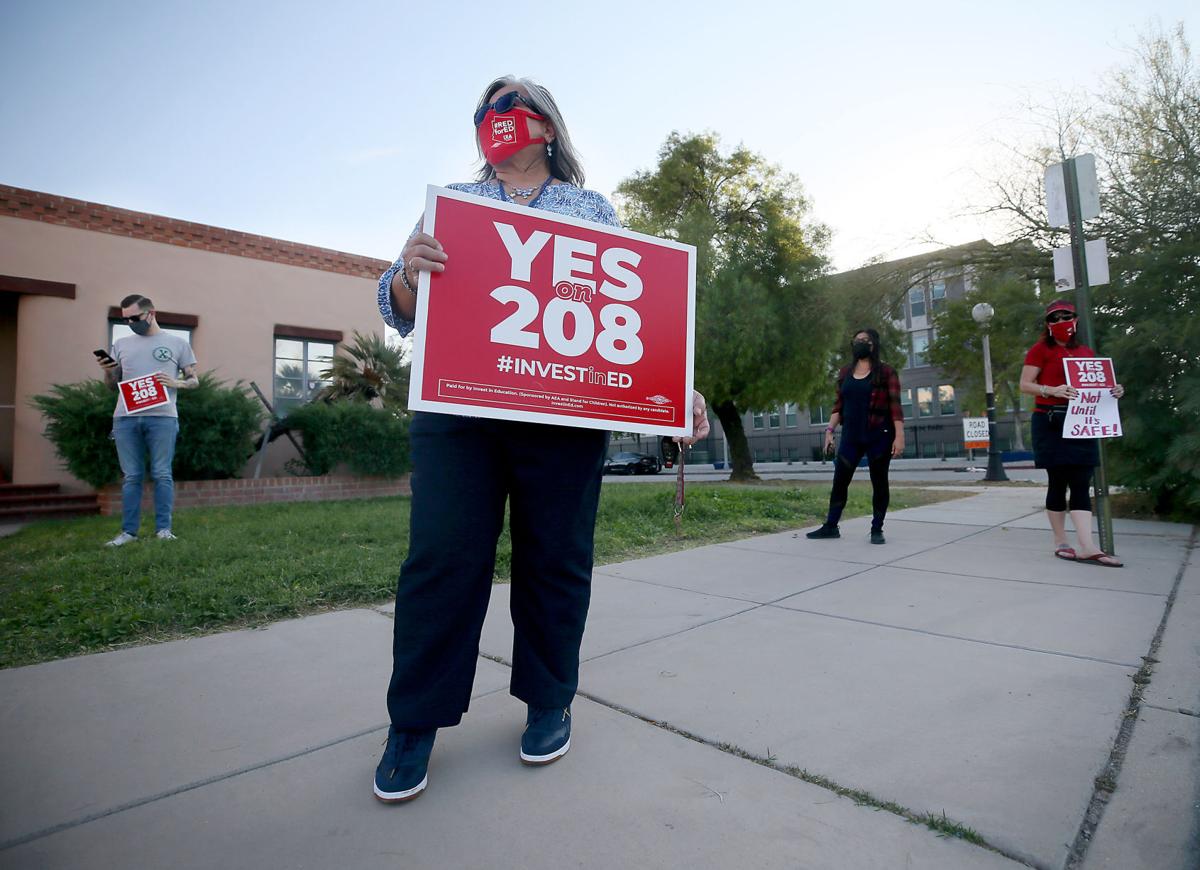PHOENIX — Groups that killed a voter-approved tax to fund education in court now are seeking nearly $1 million in legal fees from initiative organizers and the state.
And given the campaign committee has virtually no assets that could mean taxpayers — a majority of whom voted for Proposition 208 only to have it overturned in court — now would be stuck with the bill. That’s because the campaign committee had about $21,300 on its last report.
Legal papers filed in Maricopa County Superior Court contend state law entitles the four separate law firms involved in the challenge to recoup the money spent by multiple lawyers. The lead lawyers from the three main firms on the case — Brett Johnson, Dominic Draye and Jonathan Riches — told Judge John Hannah that action “vindicates the rights of all Arizona taxpayers.”
That conclusion drew derision from Andy Gaona, who represents Invest in Arizona, the sponsor of Proposition 208.
He said state laws allowing those who bring these kinds of lawsuits to collect their legal fees requires, at the very least, a showing that the ultimate ruling benefited a large number of people.
“Instead, those efforts benefited a few wealthy taxpayers,” Gaona told Hannah, specifically individuals with taxable income of more than $250,000 and couples above $500,000.
And what’s worse, he said, it was done “at the expense of undoing an initiative passed by the majority of Arizona voters to address a chronic lack of adequate funding for Arizona’s public schools.”
And Brian Bergin, the private attorney who represents the state, said the expensive lawsuit was legally unnecessary.
He pointed out that any individual who was affected by the new tax had the right to challenge it through existing legal mechanisms and would have “obtained the same outcome.” And Bergin told Hannah that even if legal fees can be awarded, the fact that it involved 11 lawyers from three law firms who were at the center of the case — and another eight from another firm representing a private company that filed its own challenge — should get a closer look.
“While there is nothing wrong, per se, with representation by multiple firms, the sheer number of attorneys involved raises concerns over duplicative time expended by multiple attorneys on the same or similar tasks,” Bergin said. He said any one of the three main firms could have competently represented the challengers for a lot less.
The fight over the legal fees are what’s left of Proposition 208. Approved in 2020, it would have imposed a 3.5% tax surcharge on the incomes of those making more than $250,000 — double that for married couples filing jointly — to raise about $900 million for K-12 education.
After foes were unsuccessful in knocking it off the ballot, voters approved the plan by a margin of 51.7%.
That resulted in a new lawsuit by several Republican lawmakers along with individuals who said their incomes were high enough that the proposal affected them.
While a trial judge upheld the measure, it was sidelined by the Arizona Supreme Court which concluded there was no way to spend the money without bumping up against a constitutional aggregate spending limit on education. And the justices said it was irrelevant that lawmakers themselves could waive that spending limit.
It is now up to Hannah — who actually sided with Invest in Education before being overturned by the Supreme Court — to decide whether it is appropriate to award legal fees to the challengers and, if so, how much.
Gaona said there are numerous reasons for Hannah to reject the request, at least as far as Invest in Arizona is concerned. And it starts with the attorney general sitting on the sidelines while an initiative approved by voters — and presumed legal until proven otherwise just like laws approved by the Legislature — forced Invest in Education to defend the measure.
“To hold those parties responsible for challengers’ fees would hardly be equitable,” he wrote. “Indeed, it would have a profound chilling effect on the fundamental right to legislate by initiative.”
And Gaona also pointed out that the foes did not actually win all of their legal arguments.
Most notably, he noted, the GOP lawmakers and their allies argued that only the legislature can raise taxes or, if they do, it has to be approved by a two-thirds vote. Both arguments were rejected by the Supreme Court.
Gaona, like Bergin, also urged Hannah to take a closer look at the nearly $1 million fee request by the four law firms.
“By quick comparison, the (Invest in Arizona) total fees for defending this case, before making all normal and customary reductions and adjustments, were around $391,000, or less than half the total amount sought by plaintiffs,” he said. “The contrast couldn’t be more stark.”
No date has been set for a hearing.





